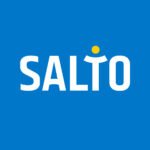Open calls: Project Officer and 2 Trainers, “Inclusive and Participatory Digital Transformation” initiative
10 March 2022
Photo by Brooke Cagle on Unsplash
SALTO Participation & Information in cooperation with SALTO Inclusion & Diversity is looking for 1 project officer and 2 trainers to support the initiative “Inclusive and Participatory Digital Transformation”.
The deadline for applications is 30 March 2022 23:59 CET.
Applicants will be informed of the selection by 7 April 2022.
Discover all details about the call for Project officer and apply online
participationpool.euDiscover all details about the call for 2 Trainers and apply online
participationpool.eu
Background information:
“Inclusive and Participatory Digital Transformation” consists of a cycle of 6 blended activities (2 residential and 4 online) for trainers and youth workers taking place between September 2022 and April 2023. The activities will be complemented by 6 online panel discussions taking place during the same interval.
Main aims:
- supporting the quality of digital transformation projects in the EU Youth Programmes, by
- improving trainers & youth workers’ competences and
- creating discussion and awareness about the different aspects of digital transformation on a cross-sectoral level.
Rationale:
Skills, competences, tools are often discussed in regards to the digital world. But what are the necessary quality aspects for digital transformation?
SALTO Participation & Information Resource Centre has been exploring digital transformation and what it means for the European Youth field, while SALTO Inclusion & Diversity Resource Centre has been focusing on inclusion in digital youth work and on the quality criterion for online, blended and hybrid mobility activities. Now we are joining the forces to go deeper and more hands-on and to unfold the digital transformation and its many facets.
The COVID-19 crisis shed light on the importance of digital education for the digital transformation that Europe needs (Erasmus+ Programme Guide). The necessity for transforming activities, spaces and methodology to the online world was sudden and didn’t give much time for planning and preparation. Transferring residential activities directly to the online world has caused a decline in quality as well as issues with accessibility and work-rest balance. Screen fatigue and reduced possibilities for physical connection can even affect our health and capacity to participate. On the other hand, it created new possibilities for working, collaborating and learning. Despite the constraints, international youth work could carry on, demonstrating a strong level of resilience and creativity.
How to create a healthier and more balanced way for organising digital or blended activities, so they would bring more quality to the EU youth field? What does digital transformation in the new EU Youth Programmes even mean and what are the different aspects of it? What can we learn from the private sector and other sectors which have already gone through the digital transformation? During our cycle of activities, we will try to answer those questions and many more.
Activities included:
A. Capacity-building cycle:
- This training brings together approx. 30 participants over a time period of 6 months
- It includes 4 online trainings and 2 residential activities (training in Lithuania and study visit in Armenia)
B. Online panel discussions:
- 6 panel discussions live-streamed in social media – attendance is not limited;
- following the topics of digital transformation framework for EU Youth Programmes and synced with capacity-building cycle;
- We plan to involve experts from the private sector, youth work, policy-making, research and also directly from active young people.





